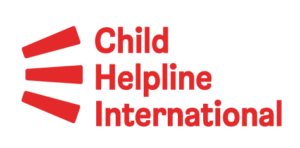Our European Regional Manager Ronja Ulvfot recently blogged about her invitation to speak about child helplines and children in migration at the Expert Seminar on European and International Policy Agendas on Children, Youth Affairs and Children’s Rights.
Here, our child helplione member The Smile of the Child – based in Greece – presents further observations and remarks about children in migration, and the gaps that exist in providing for their mental wellbeing.
The increasing migration flow in recent years has led to emerging needs in areas such as mental health, physical health, housing, adaptation and integration. The refugee population is a crisis-affected one with diverse needs. Τhere is no common acceptance about what constitutes “crisis”, however: Every call a child or young person makes to a child helpline could centre around a hidden crisis affecting that individual.
Calls often involve support for basic needs such as food and hygiene items, psychological support, or guidance related to medical issues. Every call is nevertheless thoroughly explored in order to address the specific needs of the caller, who is entrusting us with their issues.
In Greece, the SOS helplines often serve as the first recipients of various requests, guiding and referring individuals to appropriate support frameworks. From the very first contact with the helplines there is an acknowledgment of the experiences the caller has had, highlighting their strength in what they have achieved so far. This establishes a condition where the caller can trust us and share information and emotions they might not want to share with anyone closer to them.
We find that refugees are dealing with highly uncertain living conditions, facing communication difficulties due to language barriers, and often becoming victims of exploitation, leading to a constant sense of vigilance. We frequently hear about refugees feeling exhausted by the procedures they need to follow without the necessary guidance. It’s crucial to remember that we are dealing with individuals already traumatized both mentally and physically. When they find themselves in a safe environment where they can open up and communicate their experiences, processes of post-traumatic stress often emerge, affecting both children and adult caregivers.
Additionally, it’s important to note that in their already traumatized personalities, refugees often become victims of abuse, economic exploitation, trafficking, and women in particular may suffer from sexual abuse. Children may fall prey to economic exploitation (child labour), resulting in further traumatization. In the contexts refugees reside within, such as camps, conditions are often harsh. Typically, we hear references to insects and rodents in the camps, which are often old and run-down structures, as well as serious problems concerning the surrounding area. Population growth within the camps also undermines living conditions. It was reported that in the Ritsona camp there are about 2,300 people, of whom 1,000 had entered the camp between August and October 2023. There is also a lack of any psychosocial support available, with the SOS helplines filling this gap, serving as relief outlets for the burdened mental state of both children and their adult caregivers.

Subsequently, due to limited or no access to education and employment opportunities, refugees often feel trapped in a space, primarily characterized by those dire conditions mentioned above. This results in several issues for their mental wellbeing, including reduced self-confidence, negative self-image, a sense of incapability and inferiority, along with a general attitude that they cannot achieve anything. The goal of SOS helplines, once again, is to provide space for these feelings to emerge but, more importantly, to remind them of their identity and their achievements when they were back in their home country. By connecting them with relevant services and organizations, the aim is for gradual independence and finding motivation for personal development.
In conclusion, based on the above and our daily interaction with the refugee population, we recognize certain gaps. Specifically, we observe a lack of easily accessible mental health support for refugees that is tailored to their cultural background. Many mental health professionals may struggle to meet refugees’ needs due to overlooking these cultural backgrounds, and some lack training in trauma management. Additionally, a portion of the refugee population misses out on support and psychosocial services due to the language barriers they face, and the lack of adequate interpretation.
Furthermore, there seems to be no provision for specialized mental health services for children in minority groups, who may have experienced stigma, such as those with disabilities or LGBTQ+ children. Moreover, there is no apparent plan for implementing child-friendly expression methods, such as specific platforms and applications such as web-based chat, where children could communicate their emotions and needs.
Lastly, the needs of children are often not recognized, and it is the parents’ responses, desires and statements that are primarily examined. Children are not asked about their own desires until a certain age during the interview process.
When we talk with a child and make decisions for them, we’re not obliged to agree with them. But we must listen to what they have to say, and enable them to have control over their own lives.
The Smile of the Child
Greece


